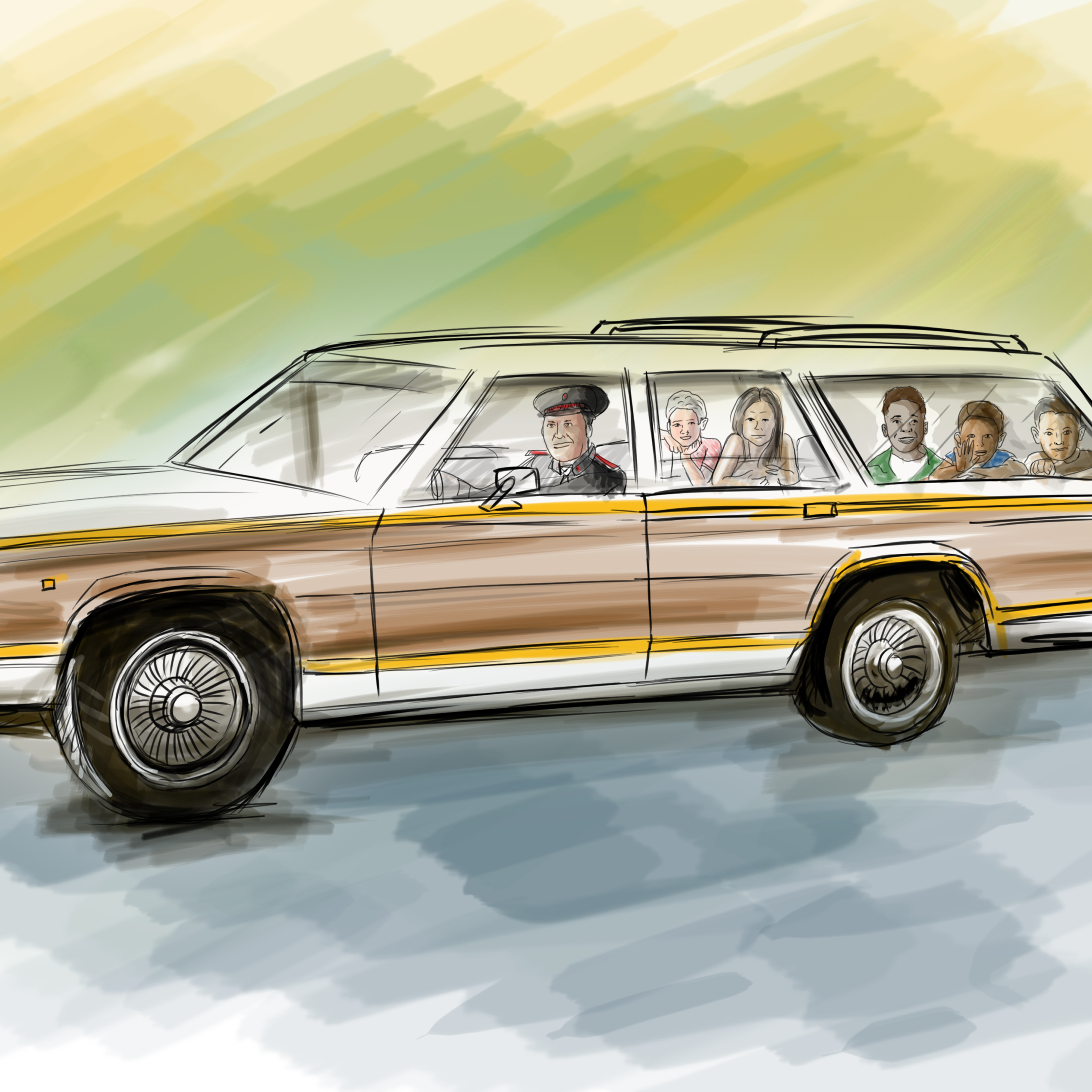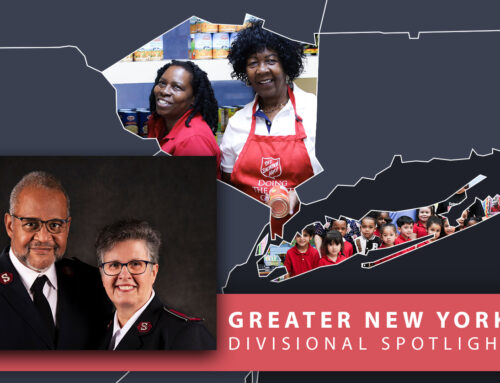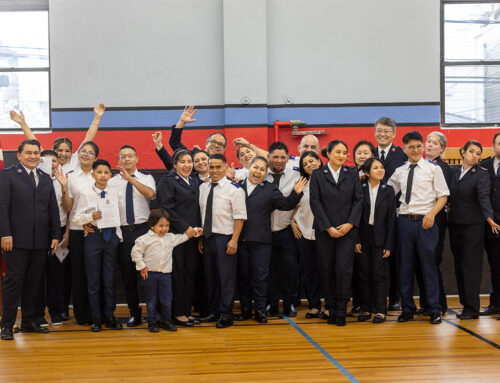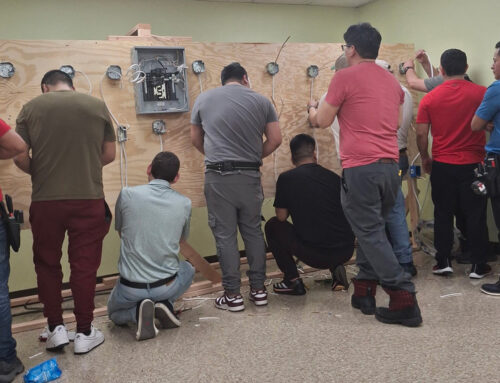A Bus Ministry Legacy
by Robert Mitchell

A Bus Ministry Legacy
Then the master told his servant, ‘Go out to the roads and country lanes and compel them to come in, so that my house will be full.’—Luke 14:23.
The sight of colorful church buses dotting America’s roads on Sunday mornings is a tradition predated by D.L. Moody’s horse-drawn “church wagons” in Chicago during the late 1800s.
While many churches offer bus ministries, The Salvation Army boasts a vibrant “van ministry” that brings people to church and other activities. The name of the church is usually emblazoned on the side, along with the familiar red and white Salvation Army shield.
Many Salvation Army churches are in urban areas and some parishioners walk to services. However, for those who live further away, the vans are a godsend.
Captain Scott McNeil, the pastor of a Salvation Army church in Manchester, N.H., says he probably wouldn’t be in the ministry today if not for someone picking him up for church.
“I am old enough to be part of the station wagon ministry prior to corps getting vans,” McNeil, 63, says today. “I am now an officer and that story from my youth is still vivid in my thoughts and memories.”
McNeil grew up in Milford, Mass. His family originally lived close enough to the church that he could walk. That all changed when the clan moved just outside Milford when he was 7.
“I remember being shuttled to the corps and programs and even divisional events in the station wagon,” McNeil says.
The officers were Captains Kenny and Virginia Van Brunt and the station wagon could accommodate seven people. McNeil remembers one fun Sunday morning when Kenny Van Brunt pulled over during a snowstorm and allowed the kids to slide down a hill on cardboard.
“It was a spur of the moment thing,” McNeil said. “It was a blast. I still remember that, all these years later.”
McNeil said Van Brunt would engage the kids in song as they traveled to the church for services, and youth activities. They also helped around the corps by participating in ministries such as the food pantry.
“When I was a young boy, going to the corps developed my personality. I saw kind adults besides my parents being concerned and caring for children,” McNeil said. “That was nice to see. They took a great interest in kids.
“To have other adults besides our parents who were interested in molding and shaping a young person’s life, whether it just be through some kind of fun event or a Bible study or songs, was inspirational. That’s a key to why I’m an officer today.”
McNeil said he rode the station wagon to church until his teen years, when he walked away and “did my own thing” until he was 30 and a single father. That’s when his son, Scott, began asking questions about God. McNeil wanted his son to have a relationship with Christ, so he returned to the only church he knew—The Salvation Army.
In a reflective mood, McNeil recites “Start children off on the way they should go, and even when they are old they will not turn from it,” (Proverbs 22:6).
“That’s really what happened to me,” he said. “If my son hadn’t started asking me questions about God, I probably never would have gone back. I went back to my home corps.”
He tried sitting in the back row in the early days of his return, but God had other plans that would lead him to a new wife and a long career as a Salvation Army officer.
“I was very content being a spectator at first,” he recalls.
However, it wasn’t long before he was asked to get involved in leading worship and teaching. He eventually became a lay leader at the church and met Nora, who also was a single parent. The two would later be called to Salvation Army officership and entered training in 2005.
The McNeils have been officers for 15 years. While the COVID-19 pandemic has sometimes halted transportation over the last two years, McNeil has had many chances before the pandemic to drive vans and relive a fond time in his life.
“It really brought back some wonderful memories. I engaged with the young people and remembered my youth,” he said. “We would pick them up and feed them and teach them many of the same lessons I learned as a young boy.”





